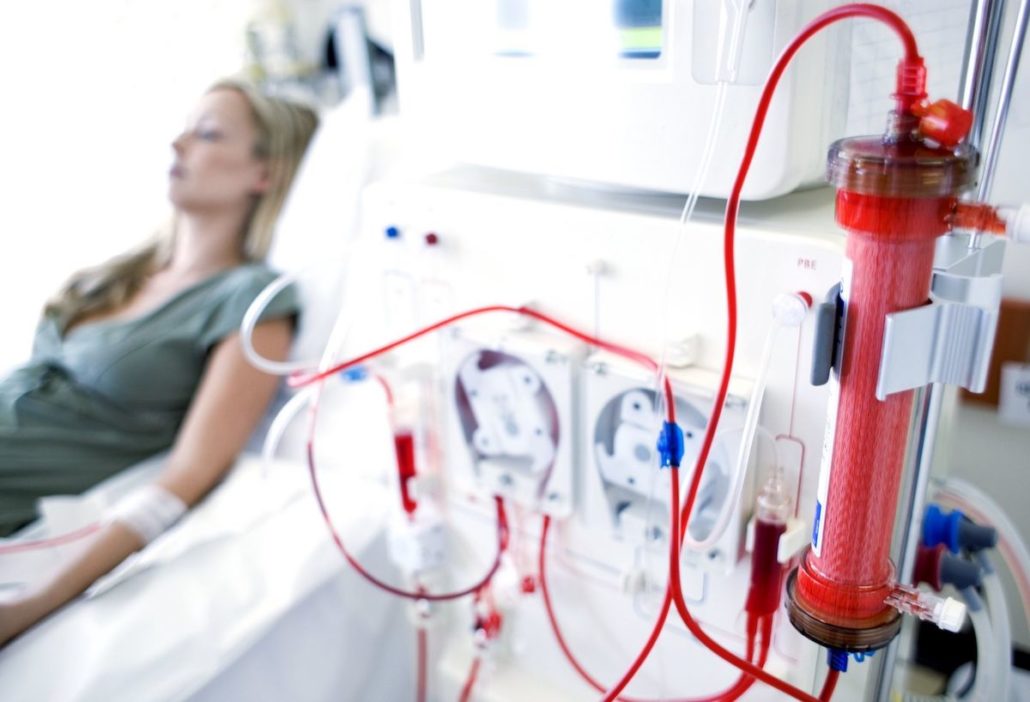Causes Alcohol Liver Damage
Alcohol liver damage or alcohol-related liver disease (ARLD) is caused by heavy consumption of alcohol. The liver’s job is to break down alcohol. If you drink more than it can process, it can become badly damaged.
According to the Center for Disease Control and Prevention (CDC) [1], 25.7% of adults aged 18 and over had at least one heavy drinking day (five or more for men and four or more drinks for women) in the past year.
Moreover, 24,110 individuals died because of alcohol liver damage due to alcohol-related liver disease. There were 29,043 alcohol-induced deaths in 2020, excluding accidents and homicides.
Every time we drink alcohol, the liver has to filter it to break it down and remove it from the body. Unfortunately, some liver cells die during this process, which is why the liver needs a break from alcohol to allow it to regenerate and make new cells.

Get Your Life Back
Find Hope & Recovery. Get Safe Comfortable Detox, Addiction Rehab & Mental Health Dual Diagnosis High-Quality Care at the We Level Up Treatment Centers Network.
Hotline (877) 378-4154
Drinking too much alcohol over a long period of time means the liver doesn’t get a chance to recover. This can result in severe and permanent alcoholic liver damage.
It can take as little as two or three drinks per day for alcohol to start damaging the liver. This is because it takes roughly an hour for the body to process one drink. So, if you are drinking multiple drinks each day, that is equivalent to taking far more than one drink at a time.
For people who don’t drink often, their livers can usually handle the occasional alcoholic beverage without much risk of damage. However, for regular drinkers and heavy drinkers, there is no safe threshold that can protect your liver. You might be able to get away with only two or three drinks on a weekend, but drinking every day can definitely cause liver problems down the road.
Fatty liver can happen in anyone who drinks a lot. Alcoholic hepatitis and alcoholic cirrhosis are associated with the long-term alcohol abuse seen in alcoholics.
The most important part of treatment to prevent and stop alcohol liver damage is to stop drinking alcohol completely. If you don’t have liver cirrhosis yet, your liver can actually heal itself, that is if you stop drinking alcohol.
You may need an alcohol rehabilitation program and counseling to fully recover from alcohol abuse. Vitamins, especially B-complex vitamins and folic acid, can help reverse malnutrition. If alcoholic cirrhosis develops, you will need to manage the problems it can cause. It may even lead to needing a liver transplant.
What is an Alcoholic Liver Disease?
Alcoholic liver disease is common but can be prevented. According to the National Center for Biotechnology Information (NCBI) [2], there are three stages of alcoholic liver disease. Many heavy drinkers progress through these three types over time:
Alcoholic fatty liver. This is the first stage of ARLD. Fatty liver is the build-up of fat inside the liver cells. It leads to an enlarged liver. It’s the most common alcohol-induced liver problem. It can be cured by not drinking alcohol anymore.
Alcoholic hepatitis. Alcoholic hepatitis is an acute inflammation of the liver. As a result, there is the death of liver cells, often followed by permanent scarring. The outcome depends on the severity of the damage. In some cases, treatment can reverse the damage, while more severe cases of alcoholic hepatitis can lead to liver failure.
Alcoholic cirrhosis. Alcoholic cirrhosis is the destruction of normal liver tissue. It leaves scar tissue in place of the working liver tissue. This is the most severe form of ARLD. At this point, the liver is scarred from alcohol abuse, and the damage cannot be undone. Cirrhosis can lead to liver failure.
Functions of the Liver
The liver is a large organ that sits up under the ribs on the right side of the belly (abdomen). The liver:
- Helps filter waste from the body
- Makes bile to help digest food
- Stores sugar that the body uses for energy
- Breaking down saturated fat and producing cholesterol
- Makes proteins that work in many places in the body, for example, proteins that cause blood to clot
Liver failure caused by alcohol liver damage happens when the liver isn’t working well enough to perform these tasks. Liver failure can be deadly and requires immediate medical attention. The doctor diagnoses liver failure based on the symptoms, medical history, and the results of tests (urine tests, blood tests, abdominal imaging). Alcohol liver damage, caused by liver disease and liver failure is usually treated by specialists called hepatologists [3].
Get Help. Get Better. Get Your Life Back.
Searching for Accredited Drug & Alcohol Rehab Centers Near You? Or Mental Health Support?
Even if you have failed previously, relapsed, or are in a difficult crisis, we stand ready to support you. Our trusted behavioral health specialists will not give up on you. Call us when you feel ready or want someone to speak to about therapy alternatives to change your life. Even if we cannot assist you, we will lead you wherever you can get support. There is no obligation. Call our hotline today.
FREE Addiction Hotline – Call 24/7Symptoms of Alcohol Liver Damage
Some people with alcoholic liver damage and alcoholic-related disease (ARLD don’t have symptoms until the disease is advanced. Symptoms tend to be worse after a period of heavy drinking. Others start showing signs earlier.
Early Signs of Alcohol Liver Damage
Early symptoms include:
- Nausea
- Fatigue
- Abdominal discomfort
- Increased thirst
- Loss of appetite
- Fainting
- Small, red spider-like blood vessels on the skin
Advanced Symptoms of Alcohol Liver Damage
As liver function worsens, advanced symptoms may include:
- Yellow color in the skin, mucous membranes, or eyes (Jaundice)
- Swelling in the legs and abdomen
- Weight loss
- Darkening or lightening of the skin
- Red hands or feet
- Dark bowel movements
- Unusual agitation
- Mood swings
- Confusion and momory problems
- In men, impotence, shrinking of the testicles, and breast swelling
- Bleeding gums
- Pale or clay-colored stools
- Enlarged breasts (in men)
Complications of Alcohol Liver Damage
Complications may include:
- Bleeding disorders (coagulopathy)
- Buildup of fluid in the abdomen (ascites) and infection of the fluid (bacterial peritonitis)
- Enlarged veins in the esophagus, stomach, or intestines that bleed easily (esophageal varices)
- Increased pressure in the blood vessels of the liver (portal hypertension)
- Kidney failure (hepatorenal syndrome)
- Liver cancer (hepatocellular carcinoma)
- Mental confusion, change in the level of consciousness, or coma (hepatic encephalopathy)
Comfortable Facilities & Amenities
High-Quality Addiction & Mental Health Rehabilitation Treatment
Rehab Centers TourRenowned Addiction Centers. Serene Private Facilities. Inpatient rehab programs vary.
Addiction Helpline (877) 378-4154Proven recovery success experience, backed by a Team w/ History of:
15+
Years of Unified Experience
100s
5-Star Reviews Across Our Centers
10K
Recovery Success Stories Across Our Network
- Low Patient to Therapist Ratio
- Onsite Medical Detox Center
- Comprehensive Dual-Diagnosis Treatment
- Complimentary Family & Alumni Programs
- Coaching, Recovery & Personal Development Events
Risk Factors for Alcohol Liver Damage
Some of the risk factors for developing alcohol liver damage and alcohol-related liver disease include:
Alcohol consumption. Although alcohol consumption in moderation can cause some degree of fatty liver, drinking high quantities of alcohol over a long period of time puts someone at an increased risk of alcohol-related liver disease, and consequently, alcohol liver damage.
Gender. Women are more likely to develop alcohol-related liver disease than men.
Obesity. Individuals who have obesity are at a higher risk of alcohol-related liver disease.
Infections. Liver damage is accelerated in people who have chronic hepatitis C or hepatitis B.
Genetics. Genes can influence how the body processes alcohol as well as the risk for alcohol-related liver disease or alcohol liver damage.

How to Prevent Alcohol Liver Damage
To prevent liver damage and disease:
Drink alcohol in moderation, or don’t drink alcohol at all. For healthy individuals, that means up to two drinks a day for men and one drink a day for women. This is because women are more likely to develop alcohol-related liver disease than men. High-risk or heavy drinking is characterized as more than 8 drinks a week for women and more than 15 drinks a week for men [4].
Avoid risky behavior. Use a contraceptive like a condom during sex. If you choose to have body piercings or tattoos, be picky about safety and cleanliness when selecting a shop. Seek help if you use illegal intravenous drugs and don’t ever share needles to inject drugs.
Get vaccinated. If you’re at increased risk of contracting hepatitis or if you’ve already been infected with any form of the hepatitis virus, talk to your doctor about getting the hepatitis A and hepatitis B vaccines.
Manage medications carefully. Take prescription and nonprescription medications only when needed and only in prescribed doses. Don’t mix drugs and alcohol. Talk to your doctor before combining herbal supplements or nonprescription or prescription drugs.
Avoid contact with other people’s blood and body fluids. Hepatitis viruses can be spread by accidental needle sticks or improper cleanup of body fluids or blood.
Always keep your food safe. Wash your hands thoroughly before eating or preparing foods. In case you are traveling in a developing country, use bottled water for drinking, washing your hands, and brushing your teeth.
Take care with aerosol sprays. Make sure to use these products in a well-ventilated area, and wear a mask when spraying fungicides, insecticides, paint, and other toxic chemicals. Always follow the manufacturer’s directions.
Protect your skin. When using insecticides and other toxic chemicals, wear gloves, long sleeves, a hat, and a mask so that chemicals aren’t absorbed through your skin.
Maintain a healthy weight. Obesity can cause nonalcoholic fatty liver disease.
World-class, Accredited, 5-Star Reviewed, Effective Addiction & Mental Health Programs. Complete Behavioral Health Inpatient Rehab, Detox plus Co-occuring Disorders Therapy.
CALL (877) 378-4154End the Addiction Pain. End the Emotional Rollercoaster. Get Your Life Back. Start Drug, Alcohol & Dual Diagnosis Mental Health Treatment Now. Get Free No-obligation Guidance by Substance Abuse Specialists Who Understand Addiction & Mental Health Recovery & Know How to Help.
How Do You Restore Alcohol Liver Damage
There are many things you can do to help reverse the damaging effects of alcohol on your liver, such as:
Stop Drinking: If you have been diagnosed with an unhealthy liver, the first and most crucial thing you can do is stop drinking alcohol.
Make Healthy Lifestyle Changes: This could mean no more smoking and maintaining healthy body weight. Next to alcohol abuse, obesity is a leading cause of liver disease, while cigarettes contain chemicals and toxins that worsen liver damage.
Be Careful on What You Put Into Your Body: When you are not eating many processed foods, saturated fat, and sugar, the liver does not have to work as hard to filter what comes through it. A healthy diet can lead to a healthier liver.
Exercise: On top of helping to avoid obesity, exercising can assist the liver in other ways. Regular exercise improves the immune system and decreases the risk of liver cancer.
Always Pay Attention to Medications You Are Taking: Even some over-the-counter (OTC) medications can cause harmful effects on the liver when taken in excess, such as acetaminophen.
Don’t Let Unnecessary Toxins – Avoiding other substances like illegal or abused prescription medications can help keep the liver healthy. This also means taking extra precautions, such as using a mask when dealing with aerosol sprays, spray paints, spray insecticides, spray fungicides, and any other form of sprayed chemical. Be aware of what chemicals could come into contact with your skin, and wear gloves if needed.
Alcohol Liver Damage and Substance Abuse Treatment at We Level Up NJ
Get the right help in Alcohol Treatment Centers NJ, at We Level Up. When someone has a severe medical condition, it is crucial to consider substance abuse treatment options that include medical supervision. For example, alcohol use disorder treatment that offers medically supervised detox may best fit someone with a different medical need.
Medical professionals and staffs at detox units have experience with co-occurring diagnoses, especially those associated with alcohol misuse. As a result, they can work with other medical professionals to ensure the person is safe, comfortable, and receiving the best treatment and care possible.

Contact one of our specialists today and allow us to help find a substance abuse treatment center that can help you or your loved one. Trying to navigate the addiction treatment options while also treating a medical condition like liver disease can be overwhelming. However, we are available to help as soon as you are ready.
If you or your loved one is experiencing early signs of alcohol liver damage, it is important to intervene early. We Level Up NJ provide proper care with round-the-clock medical staff to assist your recovery. So, reclaim your life, call us to speak with one of our treatment specialists. Our counselors know what you are going through and will answer any of your questions.
Experience Transformative Recovery at the We Level Up Treatment Center.
See our authentic success stories. Get inspired. Get the help you deserve.



Start a New Life
Begin with a free call to an addiction & behavioral health treatment advisor. Learn more about our dual-diagnosis programs. The We Level Up treatment center network delivers various recovery programs at each treatment facility. Call to learn more.
- Personalized Care
- Caring Accountable Staff
- Comfortable Amenities
- Licensed & Accredited
- Renowned w/ 5-Star Reviews
